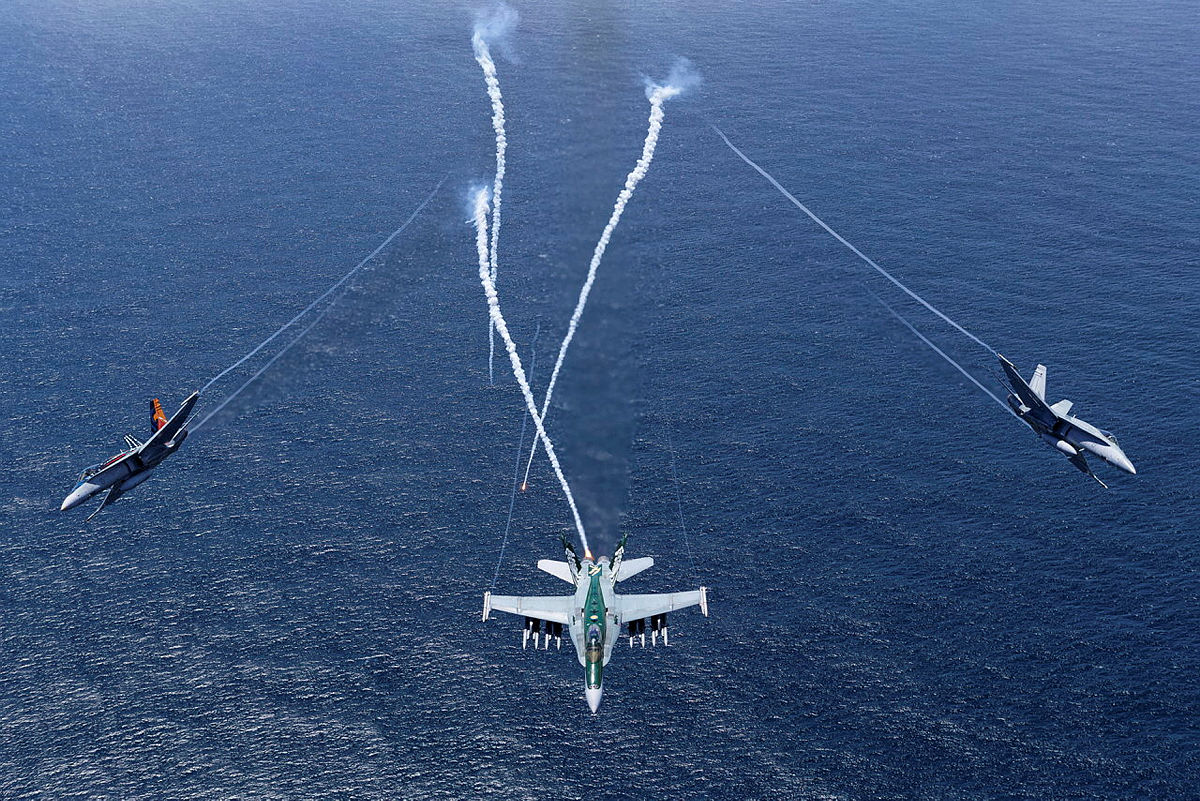ASPI’s decades: The contest of contestability

ASPI celebrates its 20th anniversary this year. This series looks at ASPI’s work since its creation in August 2001.
‘Contestability’ is a very Canberra word. It’s about the need to promote arguments. So the best arguments win and the best decisions get made.
What could be more Canberra than that?
From the Department of Defence all the way to the Finance Department (a helluva distance, although only a few kilometres apart), everyone praises the principle of contestability. It’s just the doing of the thing.
The Howard government wanted more arguments about defence—and that was at the heart of the submission that went to cabinet in April 2000 on the creation of ASPI:
The principles of contestability have been central to our Government’s philosophy and practice of public administration, but these principles have not yet been effectively implemented in relation to defence and strategic policy, despite the vital national interests and significant sums of money that are at stake … ASPI will be charged with providing an alternative source of expertise on such issues.
As a deputy secretary in Defence and then ASPI’s first director, Hugh White said the government’s act of creation reflected a commitment to ‘policy contestability’ and also ministers’ experiences of dealing with Defence:
For reasons that would be hard to pin down, and although relations between ministers, individual officers, and officials were professional, respectful, and even at times warm, it might be said that the Howard Government never established an easy relationship with the defence organisation. A few specific issues, especially on questions of defence material [sic] and acquisition, and most particularly the troubles of the Collins-class submarine, led ministers to be impatient and even suspicious of defence advice, and thus increasingly eager to find alternative ideas and arguments to test that advice against.
After some argument about how this argumentative beast should be structured, ASPI was born with contestability as a core part of its DNA.
In that spirit, ASPI’s Andrew Davies in 2010 gave the thumbs-down to Defence because of the lack of contestability inside the department. Defence’s job was to produce military capabilities for the government to use, to match military means with strategic ends. Yet the results more often reflected the preferred structures of the three services.
Alternative or transformational options had no champions, Davies wrote, and the professional military judgement prevailed: ‘The previous balance between the military world view on one hand and the analysts who could provide different perspectives, and who do not share the service ethos brought to the table by their military counterparts, has been lost.’
Defence needed to revive something like the old Force Development and Analysis Division (FDA), which was wound down in the 1990s as part of the Defence reform program. Davies had worked for FDA and its descendants and had ‘the scars to prove it’, because inside Defence the acronym had come to mean Forces of Darkness and Acrimony.
The 2015 First principles review made 46 references to contestability in phrases such as ‘arms length contestability’, ‘internal contestability’, ‘strategic, financial and technical contestability’, ‘a robust and disciplined contestability function’, and the need to ‘introduce greater transparency, contestability and professionalism’. The review stated:
A number of stakeholders raised concerns regarding the quality of policy advice in Defence. Several former Ministers stated that policy advice was diffuse, inconsistent and fragmented with one former Minister stating that his lack of confidence in Defence’s policy advice led to engagement of third parties to ‘second guess’ it. It is crucial that the Secretary and the Chief of Defence Force, as the primary policy advisers to Government on Defence issues, are provided with high quality strategic policy advice from within Defence …
Defence also requires a mechanism for providing internal contestability, at arm’s-length from owners and sponsors, up to the point of decision. This will ensure strategy, plans and resource allocations are tightly aligned and appropriately prioritised. It will also foster increased transparency and credibility with central agencies.
One of the outcomes of the review was the creation of a Contestability Division providing independent assessment and advice to the vice chief of the Australian Defence Force. The Contestability Division was described as an effort to rebuild the trust of ministers and central agencies (primarily the prime minister’s and finance departments) in Defence’s ability to deliver budget outcomes.
The first head of the Contestability Division, Michael Shoebridge, would follow Davies as director of ASPI’s defence, strategy and national security program.
Writing for The Strategist in 2016, Gary Hogan, a former director-general of scientific and technical analysis at the Defence Intelligence Organisation, said getting contestability in intelligence judgements was ‘easier said than done’:
The challenge of contestability is compounded by the very nature of the intelligence community workforce. While aspiring analysts may enter the recruitment funnel from diverse backgrounds, offering a wide range of knowledge and experiences, the excruciatingly involved security vetting process sees many fall by the wayside, with a disturbingly like-minded cohort dripping from the tube’s end. Under such circumstances, groupthink becomes a very real issue.
Hogan said analysts in think tanks outside the government bubble would assume added significance as Pentagon-style ‘murder boards’ that asked the toughest of questions: ‘Organisations like the Australian Strategic Policy Institute and the Lowy Institute could perform such a function for most strategic analysis, complemented by academics and commentators with unique expertise in arcane areas of growing importance to Australia.’
As Davies noted, such contestability—civilians testing what the services desired—could turn to acrimony and bickering. A process for dispassionate debate could often be decidedly passionate.
Standing outside Defence, ASPI tries for precision without the passion in its contestation, deeply interested in the many issues that confront Defence as a huge and complex department.